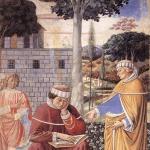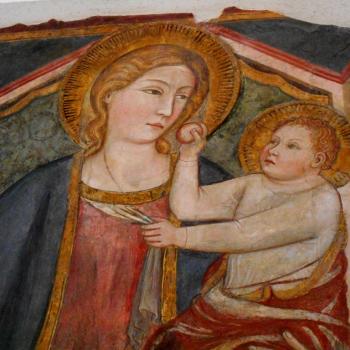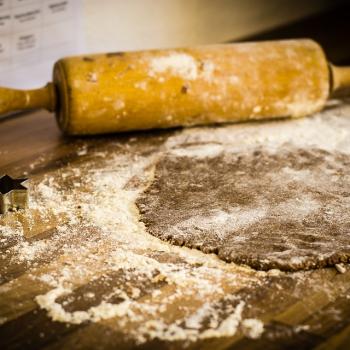Reading exists as much in our fantasy lives as it does in our routine. How many of us gather books in our house picturing the scene when we’ll finally read them: a cozy spot in the house, out by the deck, in the garden, on the train? How often do these books lie unread?
Let’s give thanks for the unread books in our lives, the joy they bring and the possibilities they carry into your lives. From a Catholic perspective, these books are all opportunities for meditation and for stillness. They mimic the time for prayer and for inspiration. When things in our lives become obligations they lose their magic. When they become tied to labor or self-improvement or a wider mission we have for ourselves, they can lose the hope that brought them into your home to begin with.
I was thinking of this recently while at Grace Farms in New Canaan, CT. It’s a contemplative space and architectural wonder that defies easy description. It’s a serpentine series of glass buildings under one continuous roof featuring a sanctuary, a library, a commons with restaurant, a pavilion, and other spaces for community events and gatherings. Christian Wiman gave a reading there from his new anthology “Joy: 100 Poems.” Wiman is a leading thinker on poetry and faith. This collection is the sort of book you welcome into your home with great hope, it may sit unread, but eventually you will see it, open to one of the poems, and participate a bit in the sort of transformative reading so many of us seek. Joy, in Wiman’s definition, is not happiness or pleasure. Those things we can have no shortage of. Joy, however, is a challenge. It asks things from us.
I bring up this anthology in this first blog post because it is so similar to my hopes for this blog. To explore, within a Catholic perspective, the way the reading life asks things from us and tests our devotion. Can we still find stillness? Do we need it now more than ever? As I’m a scholar of Renaissance literature, I won’t just be talking about current books (though I will be writing about lots of those) but about texts from antiquity to the present as well as the reading life more generally. So often we can sink into debates about what a text is or says but so rarely do we ask what it means to read at all. Many in our government and in our culture are not sure that reading difficult or arcane texts is worth very much in the marketplace. Isn’t reading just for pleasure?
Yet, when we read “for pleasure,” we aren’t reading just to pass the time. We’re seeking the kind of joy that demands you change your life. So often, we hope reading will change our lives. This blog will be about that hope and the texts that keep that hope alive.












